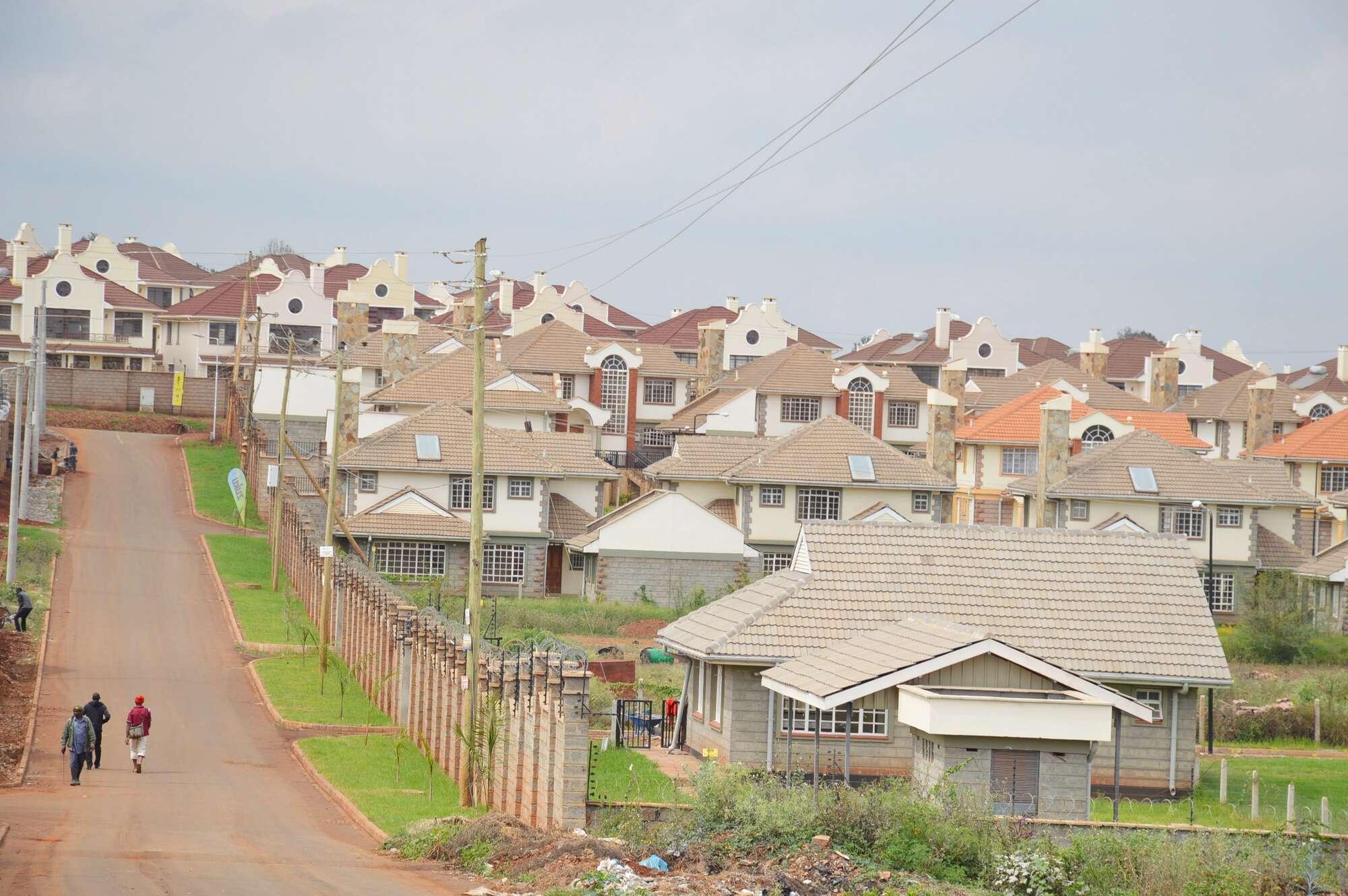The Story of Real Estate Services in Kenya: Unlocking Property Potential in 2025
Introduction: Where the Property Journey Begins
Every real estate journey in Kenya starts with a question.
“How much is my land worth?”
“Which apartment will give me the best rental income?”
“Should I build offices, warehouses, or a shopping center on this site?”
“Who will manage my property when I’m abroad?”
In 2025, Kenya’s real estate sector is not just about buildings, roads, or land. It is about the services that support every transaction, decision, and dream. From professional valuation to estate agency, from property management to feasibility studies, and from consultancy to advisory, these services form the backbone of the market.
This blog takes you through the real estate services industry in Kenya as a story — meeting the people who rely on them, the professionals who provide them, and the opportunities they unlock.

Chapter 1: Valuation – Putting a Price on Dreams
Imagine a farmer in Kiambu who inherited five acres of land. Developers keep knocking, offering to buy. But how much is it really worth? That is where valuation services step in.
Why Valuation Matters
Valuation is not just about numbers on a report; it’s about clarity, fairness, and making informed decisions. In Kenya, the importance of professional valuation cuts across multiple scenarios:
-
Banking & Mortgages: Before approving loans, banks require accurate valuations to determine the collateral value of property. An overstated valuation can put banks at risk, while an understated one locks out deserving borrowers.
-
Insurance: Property owners must know the correct replacement cost of their assets to pay the right premiums and avoid under-compensation in case of loss.
-
Sales & Purchases: Both buyers and sellers rely on valuations for negotiations. A seller in Ruiru, for example, can avoid underselling prime land while a buyer avoids paying more than the market value.
-
Compulsory Acquisition: When government acquires land for projects like highways, SGR, or dams, compensation is based on independent valuation. This ensures fairness and reduces disputes.
-
Taxation & Accounting: Organizations need valuation for financial reporting, capital gains tax, and other statutory obligations.
Valuation is more than numbers — it is about market assessment. A wrong valuation can cost millions, but a well-done one unlocks opportunities for families, businesses, and investors.
Types of Valuation in Kenya
Valuers in Kenya handle a wide range of assignments:
-
Market Value – The most common type, indicating what a willing buyer would pay a willing seller in an open market.
-
Forced Sale Value – Used when a property must be sold quickly, often in auctions.
-
Insurance/Replacement Value – Focuses on how much it would cost to rebuild a property in case of destruction.
-
Rental Valuation – Determines fair market rent for both residential and commercial properties.
-
Statutory Valuation – Required for taxation, stamp duty, or legal processes.
-
Specialized Valuation – Covers unique properties like factories, petrol stations, schools, hospitals, and hotels.
Valuation Approaches Commonly Used
Kenyan valuers adopt internationally recognized approaches, adjusted to local realities:
-
Comparative Method: Analyzing recent sales of similar properties in the same area. Popular in Nairobi, where estate transactions are frequent.
-
Investment Method: Used for income-generating properties like rental apartments, shopping malls, and office blocks. It focuses on expected returns.
-
Cost Approach: Particularly useful for specialized properties where comparable sales are limited — valuers calculate the cost of constructing the asset, minus depreciation.
-
Residual Method: Applied to development land. For example, determining how much a developer can pay for land after accounting for construction costs and profit margins.
Real-Life Illustration
Take the case of a Nairobi developer considering purchasing land in Upper Hill to build office towers. A professional valuation reveals that although land prices are high, the demand for Grade A offices has slowed due to hybrid work trends. Instead of offices, a feasibility-backed valuation suggests mixed-use development with serviced apartments and retail outlets. This saves the developer from making a costly mistake.
Similarly, a farmer in Eldoret planning to sell land may assume it’s worth KSh 5 million per acre based on rumors. A valuer’s report, referencing actual transactions, pegs it at KSh 7.5 million — unlocking higher returns for the family.
The Role of Regulation and Professionalism in Valuation
In Kenya, valuation is a regulated profession under the Valuers Registration Board (VRB). Only licensed valuers can produce reports recognized by banks, courts, and government institutions. This protects the public from fraud and ensures professional standards.
Reports typically include:
-
A detailed description of the property (size, location, improvements).
-
The method of valuation used.
-
Analysis of comparable data or income streams.
-
The valuer’s opinion of value, duly signed and stamped.
Why Valuation is the Foundation of Real Estate Decisions
Without valuation, the property market would be chaotic. Prices would be speculative, disputes would rise, and investments would be miscalculated. Whether you are buying your first apartment, refinancing your property, developing a shopping mall, or awaiting compensation for government acquisition, valuation provides the anchor.
It is the service that ensures Kenya’s real estate market operates with transparency, confidence, and fairness.

Chapter 2: Estate Agency – Matching People with Properties
Picture a young professional relocating to Nairobi for work. They need a modern one-bedroom apartment in Westlands, close to the expressway. On the other side, a developer has just completed a high-rise with units for rent and sale. Estate agents bridge this gap.
The Role of Estate Agents in Kenya
-
Sales & Lettings: Connecting buyers to sellers and landlords to tenants.
-
Market Insight: Advising clients on the best neighborhoods, prices, and trends.
-
Marketing Properties: From online listings to site visits and open houses.
-
Negotiations: Helping clients strike fair deals while handling documentation.
In 2025, technology has transformed estate agency. Virtual tours, drone photography, and online platforms allow buyers in the diaspora to secure homes without ever setting foot in Kenya. Still, trust and personal relationships remain central.
Estate agency is where dreams meet reality, where someone’s search for a home, office, or retail space ends with a handshake and a signed lease.
Chapter 3: Property Management – Keeping Investments Alive
Imagine a landlord living in the UK who owns three apartment blocks in Nairobi. Rent collection, maintenance, tenant complaints — all these can be overwhelming from afar. Enter property managers.
What Property Management Covers
-
Rent Collection and accounting
-
Tenant Screening & Lease Management
-
Repairs & Maintenance
-
Utility Bills & Service Charge Administration
-
Legal Compliance with tenancy laws and county by-laws
For investors, property managers are the difference between a thriving investment and a struggling one. With Nairobi’s rental market becoming more competitive, professional management ensures properties are well-maintained, tenants are satisfied, and landlords enjoy steady returns.
In 2025, tech-driven platforms now allow landlords to monitor rent payments, vacancies, and expenses in real time — making property management more transparent than ever.
Chapter 4: Feasibility Studies – Testing the Waters Before the Dive
A developer in Mombasa acquires land near the beach. Should they build luxury villas, a hotel, or serviced apartments? The wrong choice could lead to empty rooms and financial ruin. This is where feasibility studies come in.
Why Feasibility Studies Matter
-
Market Research: Understanding demand and supply dynamics.
-
Financial Projections: Estimating construction costs, revenues, and returns.
-
Risk Analysis: Identifying potential challenges and mitigation strategies.
-
Best Use Analysis: Determining the highest and best use for land.
In Kenya, feasibility studies are increasingly important because of oversupply in certain markets — like luxury apartments in Nairobi and retail malls in specific suburbs. Developers now rely on research-driven insights before breaking ground.
Feasibility studies are the compass of real estate development, guiding investors away from pitfalls and towards profitable ventures.
Chapter 5: General Real Estate Consultancy – Navigating Complexity
Sometimes, investors need more than one service. A pension fund looking to invest in real estate may require advice on portfolio diversification, compliance, taxation, and property structuring. This is where real estate consultancy comes in.
Consultancy Services in Kenya Cover:
-
Investment Advisory: Where and when to invest.
-
Market Analysis & Forecasting: Reading trends and projecting opportunities.
-
Legal & Regulatory Guidance: Navigating land laws, titles, and compliance.
-
Development Advisory: From concept design to execution strategy.
Consultancy brings together valuation, agency, property management, and feasibility into a 360-degree service. It is about seeing the big picture, aligning property decisions with financial goals.
Chapter 6: The Human Stories Behind the Services
Real estate services are not abstract — they touch lives every day:
-
A family in Nakuru that sells ancestral land at fair value because a professional valuer ensured transparency.
-
A teacher in Nairobi who finds the perfect rental apartment through an estate agent.
-
A diaspora investor who earns stable income because their property manager keeps their tenants happy.
-
A developer who avoids financial disaster by running a feasibility study before building in a saturated market.
-
A pension fund that secures its members’ future through strategic real estate consultancy.
These stories show how real estate services form the invisible framework of Kenya’s property market.
Chapter 7: Challenges in the Real Estate Services Sector
The sector is not without hurdles:
-
Unregulated Agents – Some unlicensed agents still operate, leading to fraud cases.
-
High Cost of Professional Services – Many small investors avoid formal services due to perceived costs.
-
Awareness Gap – Many Kenyans are unaware of the importance of feasibility studies or consultancy.
-
Changing Market Dynamics – Oversupply, economic shifts, and high financing costs require constant adaptation.
Chapter 8: The Future of Real Estate Services in Kenya
As Kenya urbanizes and modernizes, real estate services will evolve:
-
PropTech Adoption: Virtual reality tours, AI-driven valuations, digital property management.
-
Sustainability Consulting: Green buildings, solar adoption, and eco-friendly designs.
-
Regional Expansion: Kenyan firms serving East Africa and beyond.
-
Specialization: More niche consultants for retail, industrial, tourism, and agricultural real estate.
The Silent Architects of the Property Market
Buildings may dominate the skyline, but it is real estate services that shape the market. Valuation puts numbers to assets, estate agency connects people to opportunities, property management sustains investments, feasibility studies prevent mistakes, and consultancy ties it all together.
In 2025, as Kenya’s property market grows, these services remain the silent architects of progress — ensuring decisions are informed, investments are secure, and dreams are realized.
Prepared by Avenue Valuers





Join The Discussion